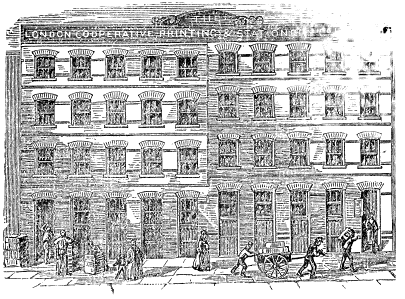<![CDATA[A new Black Cultural Archive, the first of its kind in the UK, has opened in Brixton, South London. It is hoped the £7 million project will raise awareness of a community central to Britain’s cultural identity, and begin to challenge traditional narratives of the country’s history. One does not have to walk for long in any of London’s boroughs before being exposed to one of the many unique communities that call the city home. The likes of Brick Lane, Deptford High Street or Brixton Market are home to immigrant communities that have left their own unique cultural and ethnic stamp. London is distinct because of its multiculturalism. These communities are not alien islands in the city, but fundamental characteristics that define its identity. After all, Britain’s history is one of cultural amalgamation. For thousands of years British culture has been forming from the constant integration of ‘foreigners’, whether invader, colonist or economic migrant. From the earliest conquests by Romans, Saxons and Normans, to Indian food, English heritage is one of borrowing, absorbing and adopting outside cultures. Few people will know the time frames involved when discussing Black History in the UK, the fact that it actually predates the name ‘United Kingdom’ itself. The first black Roman Emperor, Septimus Severus, died in York during the winter of 211 AD. He had come to England in 208 AD to organise the fight against the Caledonians who had breached Hadrian’s Wall. The legions Severus led into battle came from across the Roman Empire. There is evidence to suggest some soldiers from these legions may have settled in Britain. This means there could have been families of African origin in the British Isles as far back as the third century. The origins of the cultural archive come from some of the saddest days in the history of race relations in the UK. The Race Riots of the eighties were the explosion of years of frustration by black Britons against an oppressive establishment. In 1981, after the first of the infamous Brixton Riots, a group of concerned black people got together to find a place to record the full, diverse history of black people in England. Now the project is completed, the lives of individuals like Claudia Jones will be preserved. Jones was a pioneering civil rights activist from the fifties. She founded Britain’s first black newspaper, the West Indian Gazette, and campaigned against discrimination in education, housing and much more. The hope is that the archive will provide a place to learn about the defining roles black people have played in history. It aims to draw the focus away from narratives of oppression and controversy, away from issues like slavery and riots. These areas are of course represented, but the archive will show they are just one facet of a rich and complicated past. People from any race or community will be able to learn something of value to advance their understanding of the city they live in. If successful, the archive will challenge old fashioned interpretations of Black and British History, breaking down any barriers between them and highlighting they are integral and connected components of the same joint past. It can hopefully serve as an inspiration for similar archives on other ethnic groups that make up the city’s complex identity.]]>
Black Cultural Archives Opens in South London
